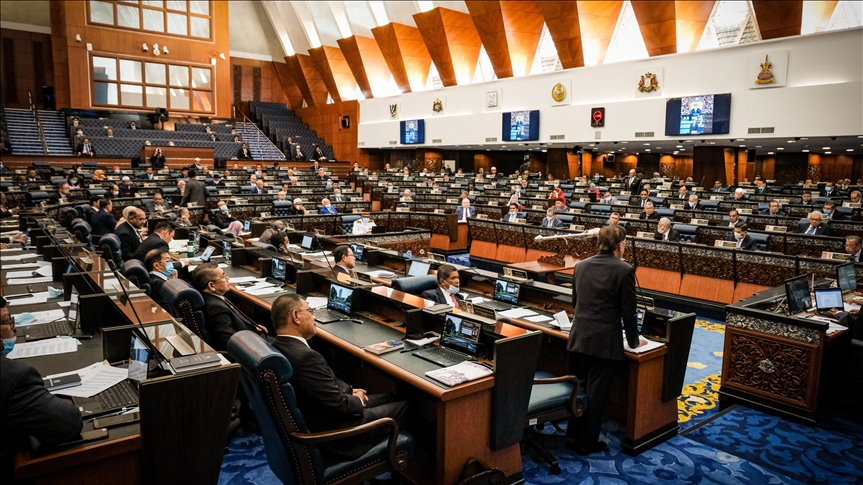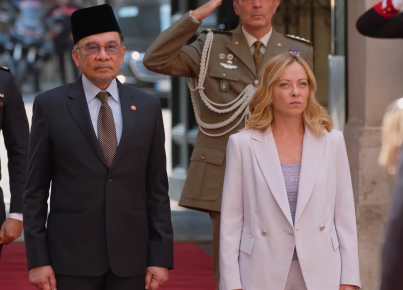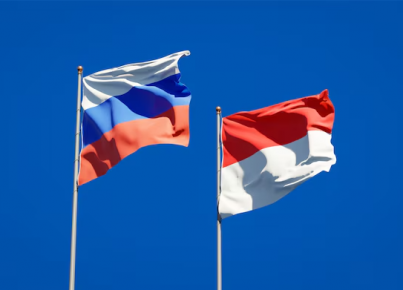Abolished the mandatory death penalty for a range of crimes in the Southeast Asian country. An important and significant decision
Article by Aniello Iannone
On Monday, April 3, the Malaysian parliament voted on a bill that will result in the reform of part of the country's criminal justice system. Specifically, the reform, in addition to abolishing the mandatory use of the death penalty (Abolition of Mandatory Death Penalty Bill DR7), will revise sentencing for crimes punishable by the death penalty and life imprisonment (Revision of Sentence of Death and Imprisonment for Natural Life Temporary Jurisdiction of The Federal Court, Bill DR 8). The reform does not abolish the death penalty in the country altogether, but it removes its sentencing requirement. Significant step. The death penalty will remain imposable for 34 crimes including those involving drug trafficking, terrorism and murder. However, the reform will give discretion to the judge in interpreting the sentence, with the possibility of imposing other milder sentences. The reform is a considerable step forward for human rights in the country. Currently in ASEAN out of 10 countries, only the Philippines (2006) and Cambodia (1989) have completely abolished the death penalty by law. Timor-Leste, as an ASEAN observer country abolished the death penalty in 1999.
Death penalty in Malaysia
In Malaysia, the criminal justice system was introduced by the British Empire and imposed the mandatory death penalty in cases of murder. How much in 1957 Malaysia gained independence, it inherited the common law system including the death penalty. In 1952, also under the British administration, the Dangerous Drugs Act was established , where in 1975 it became a crime punishable by non-mandatory death penalty. It was not until 1983 that the government led by Mohamad Mahathir, in order to demonstrate the government's zero tolerance for drug trafficking, which at that time was beginning to see high flows from producing countries in the area such as Laos, Myanmar and Thailand, that the death penalty for drug trafficking was made mandatory. However, it must be understood that from a socio-political perspective, Malaysia since its independence in 1957 has always lived in a perpetual state of perceived emergency. The death penalty in this context has been an important element in maintaining this perception of continuous emergency in the country.
Nowadays in Malaysia 34 counts may be punishable by death penalty, until the reform there were 12 punishable by mandatory death penalty: declaring war against the Yang ruler of Pertian Agong and the state, taking hostages, killing, committing terrorism, leading a terrorist group, providing services for terrorist purposes, providing property for terrorist acts, facilitating terrorist activities, facilitating organized crime activities, illegal discharge of firearms, accomplice to illegal discharge of firearms, and drug trafficking. These 12 counts will no longer be punishable by the mandatory death penalty but will fall under the other 22 counts punishable by the death penalty or, depending on how the guidice intereprehends the indictment, alternative punishments.
Reform in the post-government crisis period 2020-2022
Since 1957 to date, according to Amnesty International data, about 469 people have been executed, 1337 are currently sentenced on death row, of these a quarter are foreigners. Moreover, of these, 67.5 percent have been convicted of drug trafficking and other crimes not considered a threat to international law. For years activists have been fighting for the abolition of the death penalty in the country. In 2010, a petition drive was activated to save the life of Vui Kong, a Malaysian sentenced to death in 2007 in Singapore for trafficking 15 grams of heroin. His sentence was reduced to life imprisonment, and the signature collection reached 109,346 signatures and was then sent to the government. The International Center for Law and Legal Studies (I-CeLLs) was later established to arrive at a solution on the death penalty in the country. In 2018, a moratorium to abolish the death penalty was proposed by the Mahathir government and the coalition that won the elections, Perkatan Harapan, as one of the points in the coalition's political manifesto. However, the proposal was opposed by both the opposition and far-right conservative-Malay nongovernmental organizations such as PERKASA. Now the major breakthrough is with the government led by Premier Anwar Ibrahim.
The current situation in ASEAN
ASEAN has no law or mechanism for an eventual total ban on the death penalty in member countries. Moreover, its current organizational structure would not allow it as it is based on a strict interpretation of the policy of non-interference and protection of national sovereignty of member countries. According to a survey by the Ministry of Law and Human Rights in Indonesia about 80 percent of the population supports the death penalty. But progress continues, unlike in other parts of the world, as the case of Malaysia shows.






